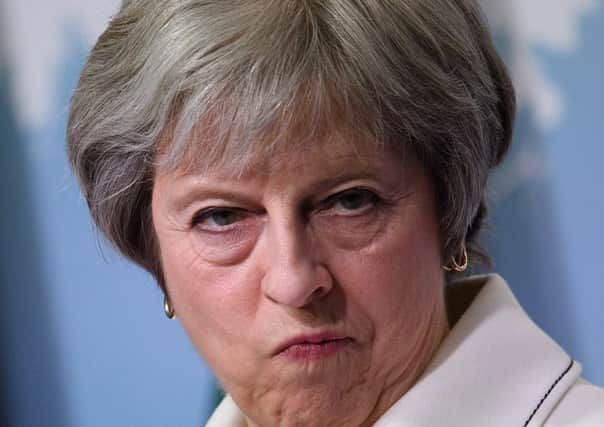Paris Gourtsoyannis: Brexit dividend could cost May dear


If you were to define Donald Trump’s politics, the aggressive promotion of falsehoods and empty promises would feature prominently in the dictionary entry.
Hence the border wall paid for by Mexico that’s actually a patchy fence paid for by US taxpayers, the choreographed chants of “lock her up” to threaten and smear Hillary Clinton without basis, or the declaration of an end to the nuclear threat from North Korea based on a single handshake… I could go on.
Advertisement
Hide AdAdvertisement
Hide AdSimilar tactics were deployed during the EU referendum campaign. One of them now appears to be government policy.
Economists, whose own work was of questionable quality during the Brexit campaign, have been helpfully clear in response to Theresa May’s claim that a “Brexit dividend” will help pay for £20 billion in extra spending on the NHS per year by 2024. In the words of IFS director Paul Johnson: “There isn’t a Brexit dividend.”
Any boost for the NHS is going to have to be paid for through taxes – most likely higher national insurance contributions – and borrowing. May’s message is clear: she’s going to build a Brexit dividend, and you’re going to pay for it.
After a decade of squeezed spending, the need to put more cash into public services is real, particularly where pressure is being felt as the population ages: the NHS. Social care will be next.
But while the government has signalled for over a year that it will loosen the purse strings, May has chosen a particular time and tone for her announcement. By effectively promising to deliver one of the Leave campaign’s more dubious promises, the Prime Minister is offering to rehabilitate the reputations of the ministers who led it.
Boris Johnson and Michael Gove risked being haunted by a ghostly apparition of that big red bus for the rest of their political lives – particularly in the years after Brexit, if the £350 million a week for the NHS failed to materialise just as they were seeking the Tory leadership again.
In exchange, Brexiteers in the cabinet are about to be asked to swallow a series of difficult compromises. There is still no plan for the Irish border and for trade on the eve of the penultimate EU Council meeting before the UK must strike a Brexit deal. Something’s got to give.
It may be on freedom of movement, which the EU is reportedly preparing to put back on the table in exchange for a trade deal, as it sees the UK in its weakest position since the referendum. Instead of going to Brussels next week with a Brexit white paper, which the government can’t agree on, May will be holding a cabinet away day where she’ll expect Brexiteers to accept whatever it takes to get a deal.
Advertisement
Hide AdAdvertisement
Hide AdBinding Johnson & Co to the government may work as a short-term measure to try limp over the Brexit line against the odds. But it carries long-term consequences that will hit the moment the Chancellor stands up to deliver his Budget in November.
Conservatives have already gambled away much of their credibility as stewards of the economy thanks to Brexit. Hiking taxes and increasing borrowing while claiming the cost will be met by a non-existent Brexit dividend risks sacrificing what’s left of that reputation.
Going into the next election with both main parties promising higher spending, will voters reward Conservatives for putting up their taxes? Tearing up the bible of conservatism moves debate on to comfortable territory for Jeremy Corbyn, and lowers the cost of voting Labour.
Meanwhile, the Tories are desperately trying to become relevant to young voters again as their base shrinks through demographic attrition. Most of the working age population voted to Remain, while most of the retired population voted to Leave. How do they imagine raising taxes on the young to collect a “Brexit dividend” that pays for health care for the old will play?
Downing Street knows that after being told as much by tabloids for decades, Leavers will believe being in the EU cost the UK money, whatever the evidence. Having the £350m pledge argued about will only help cement that in their minds.
But losing the next election at a cost of £20bn a year would be a high price to pay for Johnson’s loyalty.